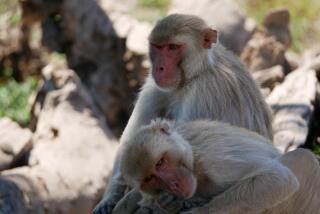The Science of Lost Lust
Southern researchers with obviously a lot of time on their hands have figured out how to make promiscuous little rodents monogamous. According to a recent edition of Nature magazine, these humans were fooling around with genes again, this time in the brains of voles. Really. Voles are mouse-like creatures that resemble moles without their urbane sophistication.
Prairie voles are among the nearly 5% of mammals that mate for life. Think mallard ducks and many humans. Meadow voles, a related species, are libertine swingers. Think dogs and many humans.
Male meadow voles do not wear wedding rings and frequently forage for sexual partners, any receptive vole partners. They will mate with multiple partners multiple times, even outside Hollywood. This scandalous behavior may be frowned on by puritanical vole elders, but it helps ensure fecundity and survival of a species that can’t see well and frequently finds itself being eaten by creatures with keen eyes and large teeth or talons.
Scientists at Emory University in Atlanta inserted a kind of loyalty gene from the brains of male prairie voles that were reliably going steady into the brains of 11 promiscuous meadow voles. This created a startling vole reversal. Suddenly, party voles became soul mates, staying at home, helping around the nest, cuddling, even cleaning. Really.
Researchers reason that the gene allows the swinger voles to learn to associate the pleasurable feelings of sex with one particular mate, while their less-educated meadow vole cousins associate the pleasurable feelings with any female vole. Obviously, humans, being superior beings who live by vows and oaths, have no need for a loyalty gene. Though much of the world outside that university laboratory was totally unaware of the ongoing difficulties and implications of vole infidelity, the new research remains fascinating. Someday it might actually help cure human afflictions like autism, which hinders the ability to bond and form relationships.
Meanwhile, although the overwhelming number of vole households are expected to remain common-law, these results may help create more stable relationships in countless rodent families. This could curb the spiraling emotional costs of split families, which leave so many young ones without viable vole models. In the future, theoretically anyway, research on mammal learning could lead to other behavior modifications -- for instance, implantation of appropriate genes into male voles who fail to clean out bathroom sinks or put toilet seats down. Such scientific advances, however, seem unlikely to occur before time travel and bringing back the dead.




